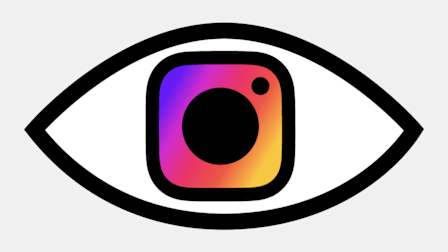How to Remove Pictures of Kids From Google Search Results
A new policy lets you keep children's pictures private, and in some cases, images of adults, too

Every day, Google’s web-crawling robots scrape billions of sites across the internet, and the data they collect is culled together to build the search results people rely on.
Sometimes Google can turn up something about you or a loved one that you’d prefer to keep private, including photographs of children.
How to Make the Request
The process for removing a child’s photo is easy. Once you find an image that you want removed, all you need to do is head to this help page and hit “Start Removal Request.”
That button will take you to a form that asks for a number of details. You’ll need to include the name of the minor, your name (if you’re making a request on the child’s behalf), the search terms that you used to find the picture, and information about the image itself.
Those details include a screenshot, a link to the full page of search results, and the URL for the image. That may be slightly confusing. To get the image’s URL, click the image in search results and hit the icon with three stacked dots in top right. Tap share, and you’ll see a button you can click to copy the URL. (It will start with “https://images.app.goo.gl/” or “https://www.google.com/imgres?imgurl.”)
Google says it will notify you when it takes the image down, if the request meets the company’s requirements. In general, Google says the only exceptions to its image removal policy for minors are situations where there’s a compelling public interest to keep the image up, or if the image is newsworthy.
Removing an image from Google Search isn’t the same thing as removing it from the internet. It will still appear on the web page the search results are pointing to, and the image may still turn up in other search engines, as well. To get an image or other information off of a website, you’ll need to ask the person or company who runs that page.
However, in many circumstances, Google practically is the internet. If an image doesn’t turn up in Google’s search results, the chances of people finding it becomes very low.
This process covers regular photos, not illegal photographs such as images of child sexual abuse. That kind of material needs to be treated more seriously. If you come across child abuse imagery online, Google recommends that you contact the National Center for Missing and Exploited Children, or one of the regional organizations listed here if you’re outside the U.S. If someone might be in immediate danger, call the police.
Removing Other Google Search Results
Google has some options to help people take down content other than images of people under 18, but only in specific cases.
Google says it will remove the following types of content.
- Nonconsensual explicit or intimate personal images (aka “revenge porn”)
- Involuntary “fake” pornography, such as images that have been doctored to make them sexual in nature without your permission
- Content about you from people-search sites that make you pay to have your data removed.
- Some financial or medical information, or details from ID cards
- “Doxxing” content, which is content exposing contact information for the purpose of harming you
You can find details and links to make such removal requests here.
However, if you want Google to remove content that doesn’t fit into one of those categories, you’re probably out of luck. Google won’t take something down just because it’s embarrassing or you don’t like it.
We asked Google why it hasn’t extended its policies to let anyone ask to have their pictures or other links taken down. In an email, a Google spokesperson said that minors are a special case because they’re inherently a vulnerable group; they can face unique harms, such as bullying; and they might not have a full understanding of the permanence of information posted online.
Whether or not you should be able to keep your information off of Google and other sites is a controversial issue. In Europe, the General Data Protection Regulation, or GDPR, enshrines “the right to be forgotten” in the law, but there’s no such law in the U.S.
People generally don’t ask companies like Google to surface information about them, and many people would like to make it harder for others to learn certain details about their lives. On the other hand, there are some good reasons for content being kept online. For instance, politicians accused of corruption may want to bury the news, but it’s in the public’s interest to have the details appear in Google search results. Removing content can also brush up against issues of free speech.




